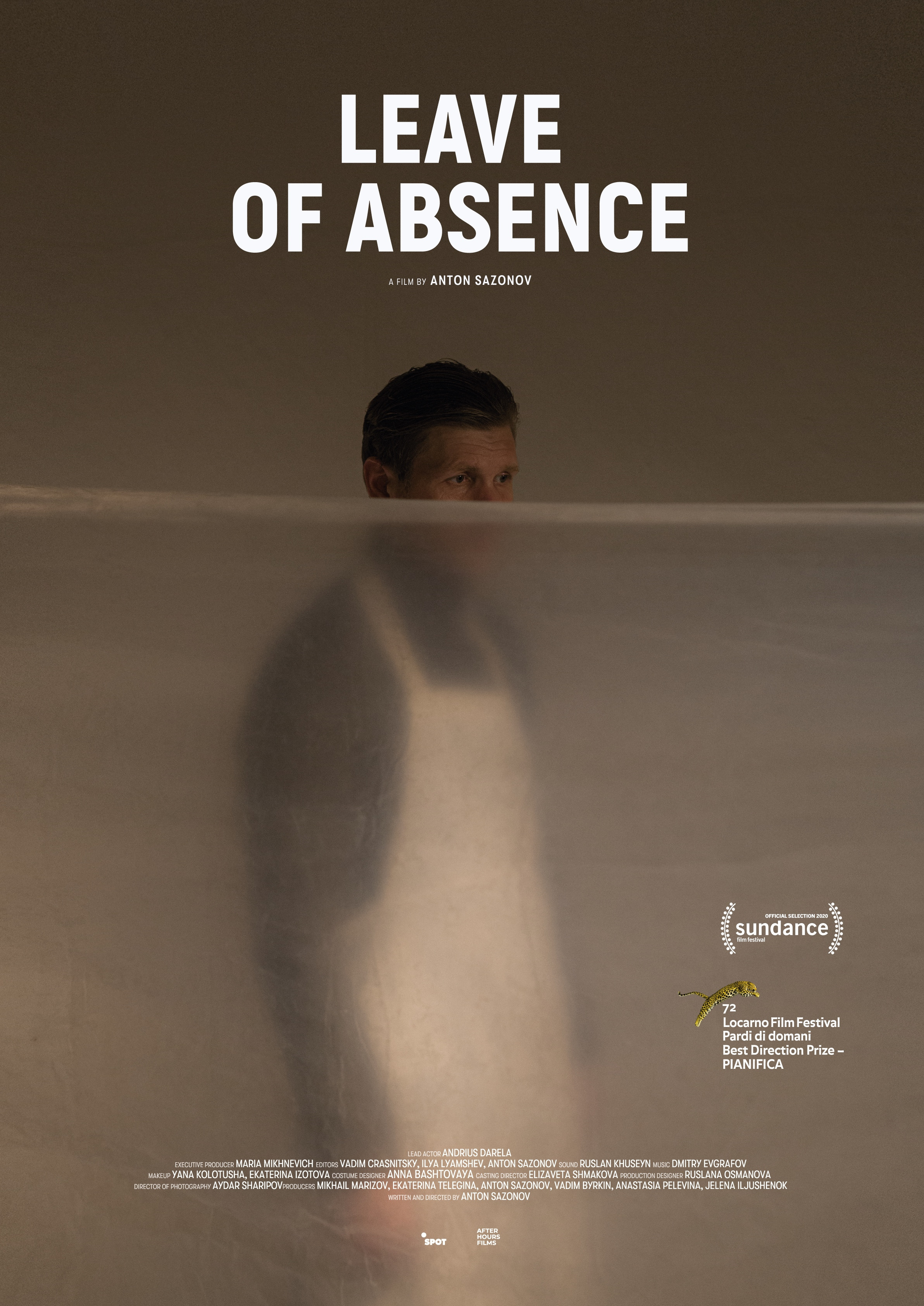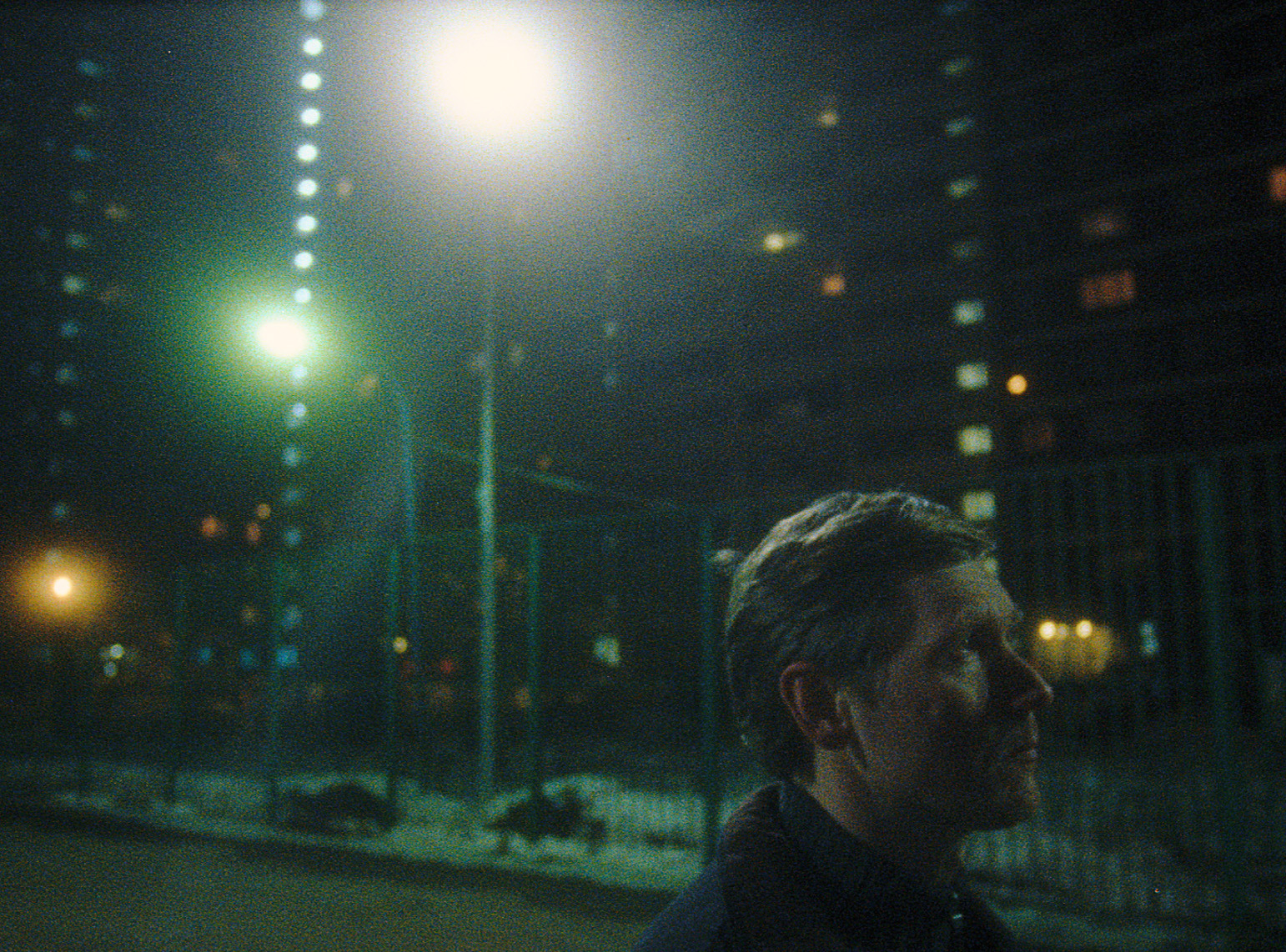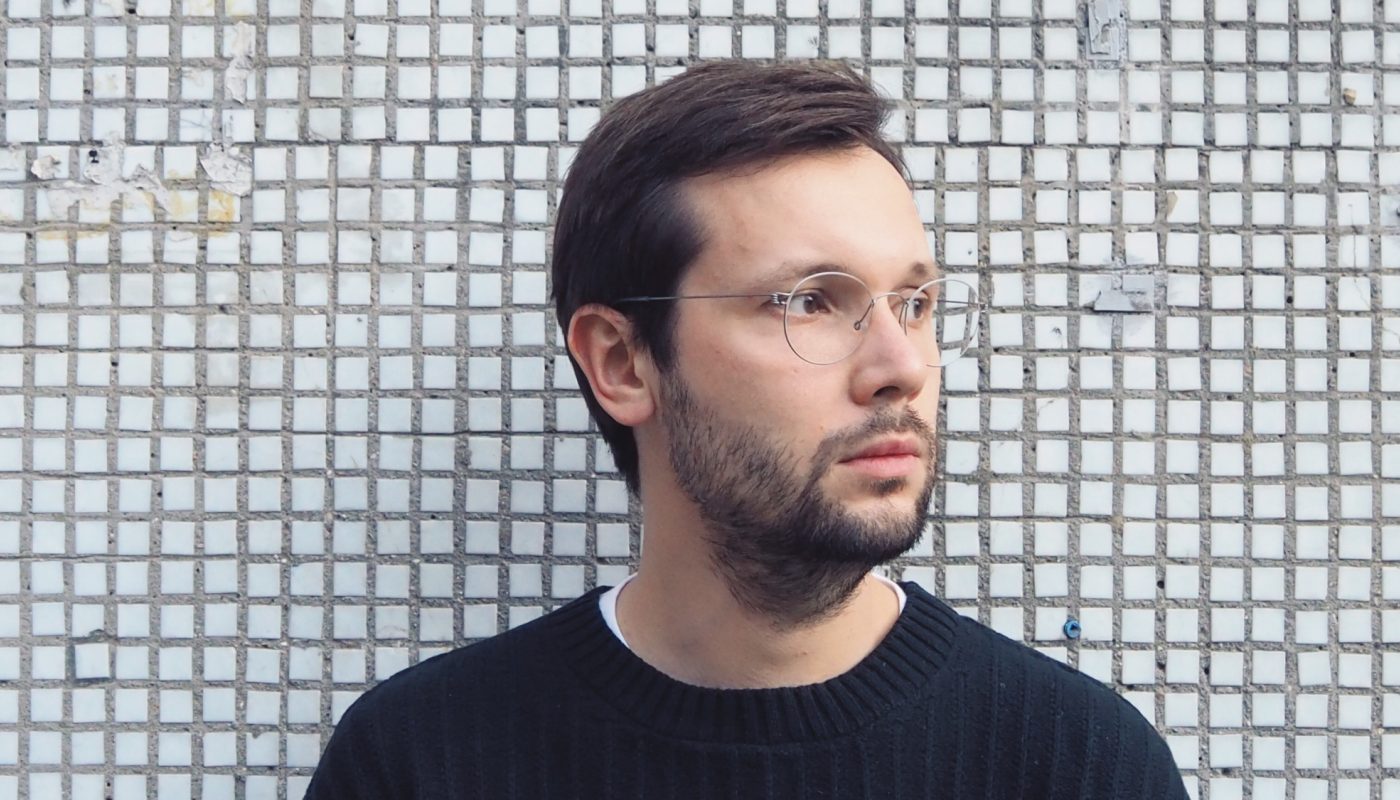

Anton Sazonov - Problems of Suppressed Masculinity
Sofia Piven in conversation with Anton Sazonov.
Geplaatst op 15 november 2020Today the Russian director Anton Sazonov tells his filmmaking career, highlights 5 interesting facts about his award-winning film Leave of Absence, which has been selected at festivals such as Sundance and Telluride. At the Locano Film Fetsival he was awarded the prize for best director. Let’s read.
"Cinema is more than a job, it's my life."
Acquaintance with filmmaking
Anton Sazonov wanted to become a director from a young age. He remembers: "Having no experience in this field, I used to categorize cinema primarily by actors - French and American." At a later age Anton became more aware of cinematography and began to follow specific directors.
Despite this, he entered an Economy faculty and received an Economy degree. In parallel with studying, Anton became interested in film criticism and took a one-year journalism course which gave the young man an opportunity to make a living as a film critic. He comments: "All the time I felt out of place until, finally, I decided to develop myself further as a director."
His first job as a film critic enabled Anton to discover more about the Moscow Film School. At first, he was not looking for a directing course at this film school and he never expected that he would study to become a director. Instead, he wanted to start filming right away. However, when Anton heard that the director Alexei Popogrebsky would teach directing at the Moscow Film School, he went to enroll without hesitation.
By now Anton is a graduate of the Directing program managed by Alexei Popogrebsky, a Russian film director and screenwriter. Anton had no idea by what criteria Alexei would choose students. He worried that the lack of experience in the field of directing could be an obstacle on his way to the dream but after the examinations Anton was accepted. The most valuable experience that Anton Sazonov gained while studying at the Moscow Film School is developing and understanding human qualities. He says: "Alexei, with his manner of teaching, was an example worth following. I hope I managed to absorb all of his best features."
Anton was taught how to shoot rather than what to shoot. That is the main reason why he admires the Moscow Film School. He believes that no one can teach you what to shoot, you have to get there on your own. By saying "how to shoot" the director does not mean the style but rather the shooting skills and principles of screenwriting which some of his teachers and especially Alexei Poporebsky paid special attention to.
Making commercials
Except for movies, Anton is also shooting advertisements. After graduating from the Moscow Film School, Anton got the opportunity to take part in the tender for a commercial video for the brand Land Rover. He comments: "There were only a few instructions, and you had to come up with a creative part yourself. I wrote a treatment and won the tender. Since then I have had an agent and have been shooting commercials in addition to films." Anton has already worked with a great number of famous brands like Samsung, Coca-Cola, Toyota, etc.
Shooting advertisements is interesting for Anton because through them he can try something new that he would never dare to try in films. According to the director his cinema vision is much more conservative. He says: "In advertising I am constantly experimenting, discovering something new. Thanks to advertising I also tried shooting on film for the first time." Each commercial is a challenge in its own way as Anton does not limit himself just to one genre. This allows him to keep moving and experimenting.
Before having produced his first commercial, Anton made his first short film for his diploma. Even though he states that film is more than a job for him, but his life, the
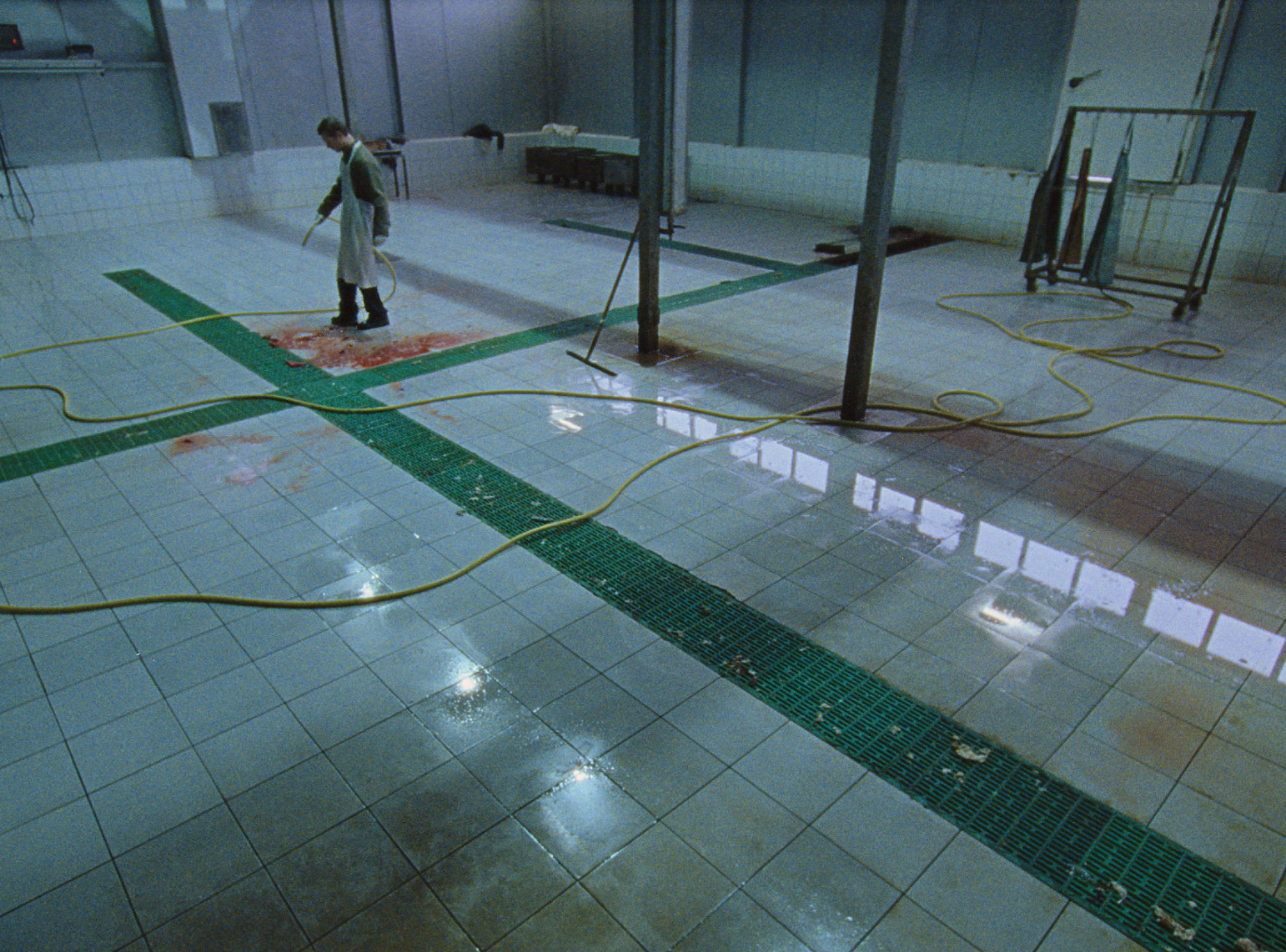
Leave of Absence
The most famous short film produced by Anton, Leave of Absence, is the expression of his personal vision of the world and also reflects what is happening around him. According to the director, in Russia, the suppressed masculinity has led to a feeling of unfulfillment as men feel that the country rejects them. Moreover, too many expectations are put on men which results in a drastic decline in men's life expectancy.
Leave of Absence shows Russia in the 2010s. Artem, the protagonist, and his family live in seperate apartmements. He is divorced from his wife, has a son he loves, works in a slaughterhouse and spends his evenings watching news of Russia's military successes in Syria. Anton comments: "It's also my father's story told not literally, but artistically. This is my interpretation of events that happened in my father's life. The story of how a person disappears from space. My father passed away a few years ago. It was a huge loss for me, despite the fact that our relationship was not the simplest and closest. Someday I will shoot a feature film about him and it will no longer be a collective image of generations of men his age like in Leave of Absence, but a story closer to his life events."
The finale of the film is open, however, in the original script the ending was more specific. Suddenly Anton realized that an epilogue was absolutely unnecessary. Therefore, the director rewrote the script so that the audience has more freedom to interpret the film in its own way. Personally, for Anton, the main hero takes a leave and disappears at the end. Where he disappears to, is for the viewer to decide. The structure of the film is intentionally made in such a way that everyone can take something different from the film. Anton emphasizes that life and the choices we make in the course of our life lie in our own hands.
Shooting on film
Although the quality of the footage might remind viewers of old movies, Anton had no intention of stylizing the film to look this way. The director thinks that the audience might get this feeling because the movie was shot on film. In general, nowadays, shooting on film does not happen so often anymore as digital cameras have taken over the cinema world. Therefore, Leave of Absence looks "strange" in some way. Anton says: "The film had to solve artistic and aesthetic problems in order to create an integral universe within which the main character can exist. To shoot on film helps to make the movie a little bit less social and not to show life very gloomy, not to focus exclusively on the dark side of life and everyday life. To shoot on film allows you to show life more beautifully, allows you to convey the beauty of life, even though the shown life is quite difficult. Moreover, my aim was to make Moscow look like a European city, to blur topographic signs. For me, this story could happen anywhere.”
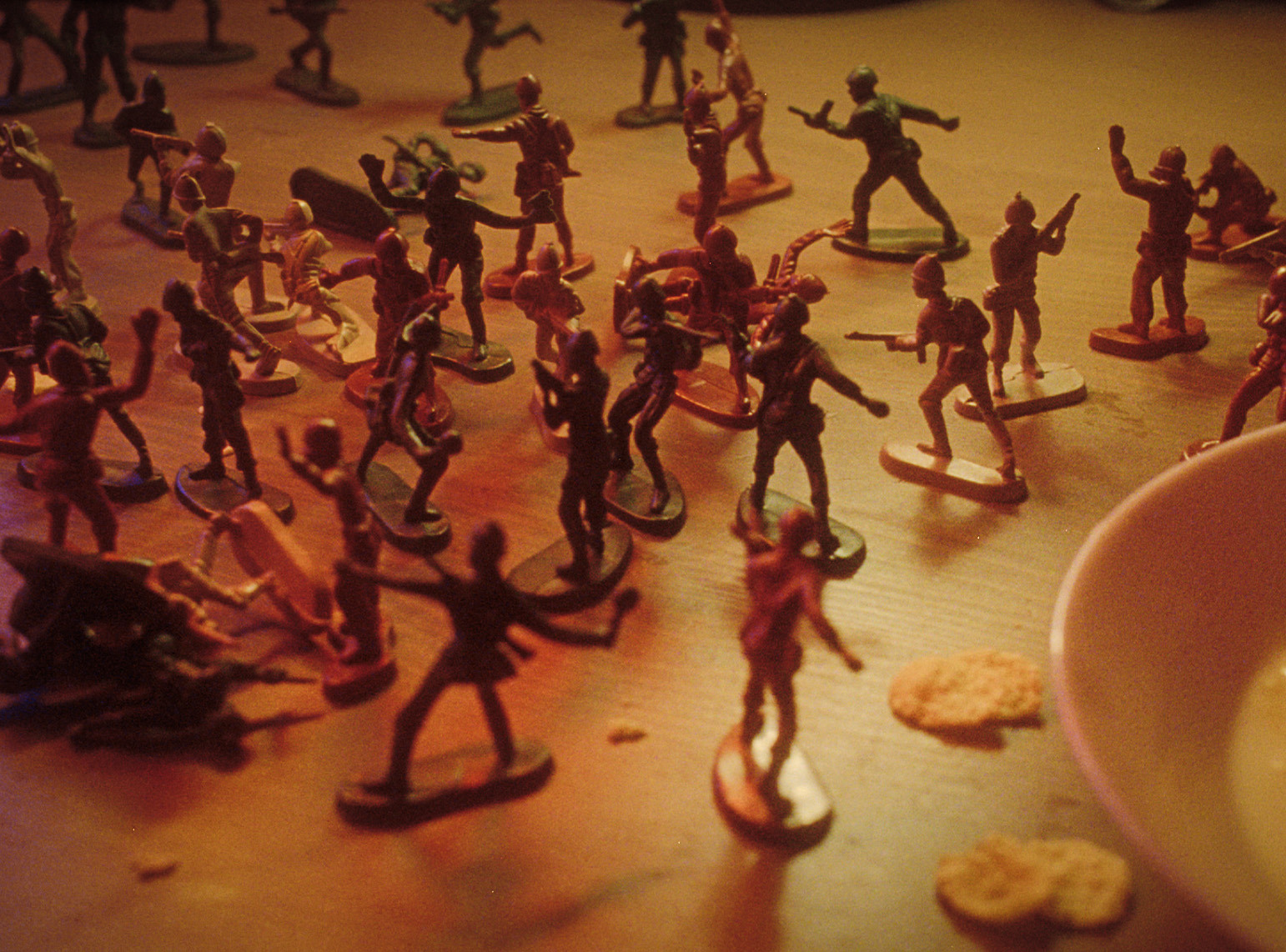
5 interesting facts about the film
The main actor of Leave of Absence, Andrius Darela, is a citizen of Latvia, so Anton Sazonov had to approve him via Skype, and that was before the heyday of Zoom during the coronavirus. The director comments: "Now this format of approving actors is becoming more and more popular, I judge it by my advertising works. So it turns out that I saw my actor in real life only after the approval. And I have never regretted this choice. Andrius is the best in this role! By the way, he was chosen thanks to our casting director Elizaveta Shmakova."
Since Anton was filming Leave of Absence on film, he did not have a
playback option, so all the footage had to be watched through the camera
viewfinder. For the director this is more convenient than it seems. He
explains that he can feel the shot as well as the result and have more
control over what is happening in the shot.
Anton Sazonov also remembers: "We made the uniforms for the workers of the slaughterhouse, where the protagonist works, ourselves. We purchased khaki fleece jackets and aprons to resemble a military uniform. In order to age the aprons our costume designer Anna Bashtovaya has been soaking them in the bathroom with tea for several days to create the effect that they were stained with dried blood. The result was very naturalistic."
Another interesting fact about Leave of Absence is that, for the scene in which the main character says goodbye to his dead father in the morgue, Anton's team was looking for school halls or a house of culture - a room that would preserve the Soviet spirit. Obviously, they all refused, because the coffins had to be placed there in order to create a proper atmosphere. No one wanted to get involved in this. In the end, Anton came to an agreement with one cultural center, which let him in on a commercial basis. He comments: "Filming takes place in this center quite often. We chose the smallest room to create a feeling of the limited space. While it was being prepared, the coffins were placed in the corridor which was full of children's drawings, since this cultural center offers classes for children. It looked very strange for casual passers-by."
By the way, the cross on the wall, that can be seen in the same scene, is the symbol of the Russian Orthodox Church. The director worried that this could create confusion because Orthodox crosses usually look differently. There was a possibility that this particular symbol could be Catholic crucifixion. However, before filming this scene, prop men specifically went to a nearby Russian Orthodox Church to accurately check the belonging of the cross. On top of that a clergy in the church confirmed that the cross is in fact Orthodox!
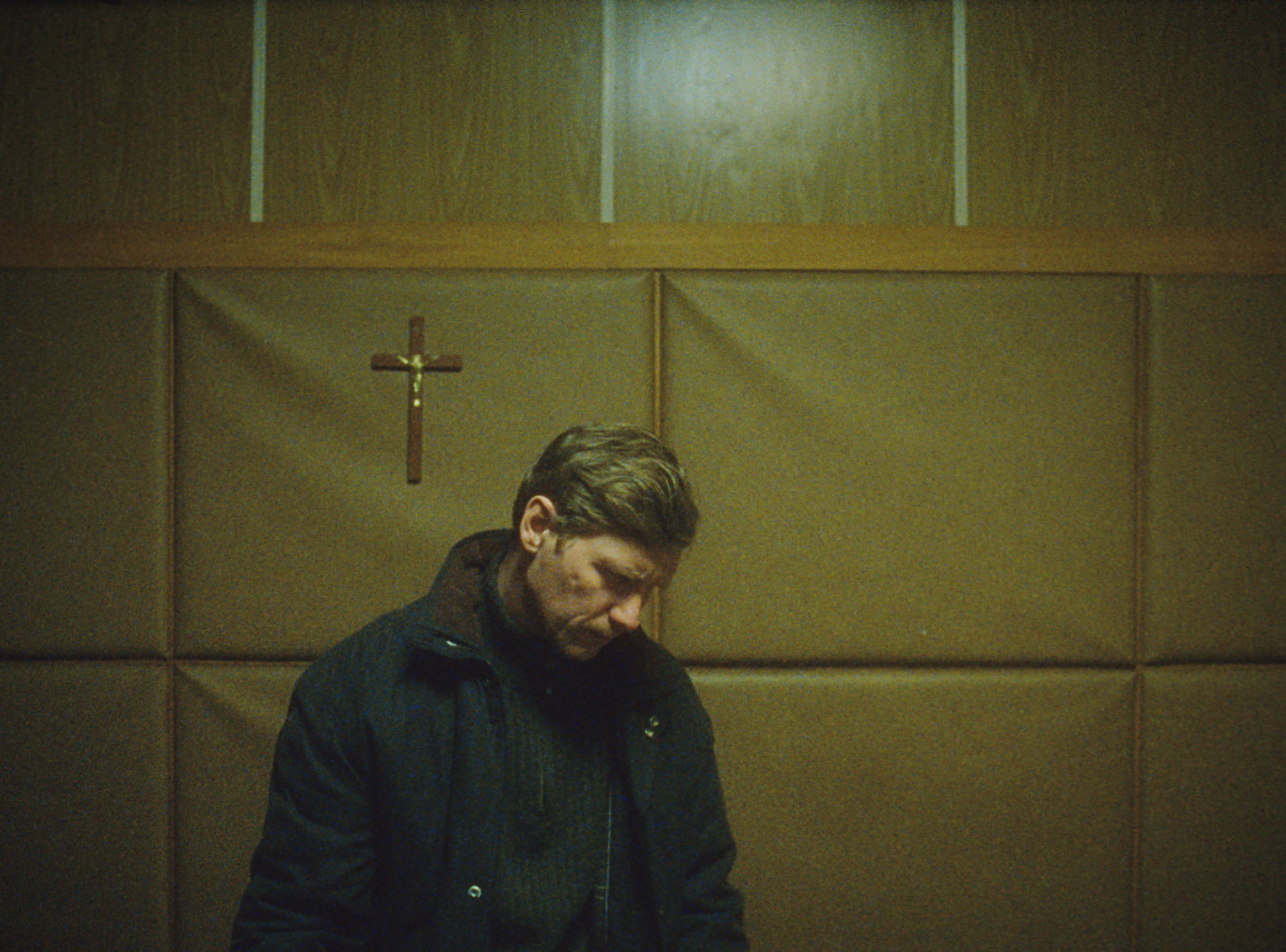
Festival experience
Anton Sazonov has no favourite film festivals, each one is valuable and loved by him in its own way. For the director, any festival is primarily an opportunity to show your film to a new audience. Participation in festivals, especially big ones like Locarno, Sundance, Telluride or Raindance, opens up opportunities in the film industry, there are more ways to launch next projects.
Sundance 2020 was an incredible experience for Anton. He says: "People, the atmosphere, the films - everything was great. Sundance is a big family and it is a great honor to be one of its participants. After all, Sundance is not only a film festival, it also includes many other important activities that have a year-round cycle." Moreover, at the festival this year Anton had a face-to-face meeting with the producer of the A24 studio. The director says that this is an experience that forever changes the way you think about yourself in the profession. "All the doors are open if you have something to offer. This kind of information explodes the brain. I have to get accustomed to this", comments Anton.
Coronavirus consequences
In spring, like everyone else, Anton was in quarantine. In summer he managed to shoot several commercials. In autumn he even succeeded in making his first music video. In early autumn he was supposed to go to America for a second time after Sundance 2020, this time to the Telluride Film Festival. Anton says: "Thanks to Sundance, I visited America for the first time this year, it was something special for me, but the trip was quite short, so now I have a great desire to return to the USA again to deepen my acquaintance with the country."
In general, due to the quarantine many of the director's plans were disrupted. The most important loss for Anton is that, unfortunately, the Telluride Film Festival, in which Leave of Absence was supposed to take part, was completely cancelled. The rest of the festivals took place online. Anton regrets this: "This is a great loss for the filmmaking world. It would be a great honor for me to be present at Telluride which has such a long history, because earlier, this festival was attended by such directors as Andrei Tarkovsky and Larisa Shepitko during the Soviet era. It is a great honor to stand in one row with them."
The importance of choice
Anton wants to give a piece of advice for rookie directors: "The most important thing in our profession is patience. And the ability to make choices and say 'no'." If the director could have changed anything in his life path he would have decided to become a director much earlier, right after middle school. However, Anton thinks that directing is a profession for mature people. So everything has its time. So far, Anton Sazonov has made two short films. His next film will be his feature debut. He is working on it at the moment.
